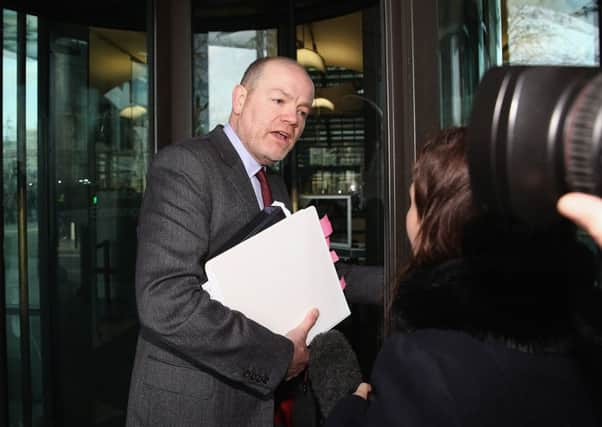BBC boss ‘sorry’ for project that wasted £100m


He was one of a handful of current and former BBC employees, including former chief technology officer John Linwood, giving evidence to the public affairs committee about the scheme’s failure.
DMI was meant to allow staff to handle all aspects of video and audio content from their desks, but after years of difficulties – during which £125.9m was ploughed into it – the plug was pulled on the scheme last year, leaving a net cost of £98.4m.
Mr Thompson told MPs DMI was “not a success”.
Advertisement
Hide AdAdvertisement
Hide AdHe said: “It failed as a project, it failed in a way that also meant the loss of a lot of public money and I just want to say as the director-general who was at the helm when DMI was created and developed and who oversaw in the end much of the governance system, which as we will no doubt discuss did not perform perfectly in this project, I just want to say sorry.
“I want to apologise to you and to the public for the failure of this project.”
The scheme – an attempt to create an integrated digital production and archiving system – was scrapped by current director-general Tony Hall in his first weeks in the job.
Mr Linwood said Mr Hall had been too hasty in writing off “tens of millions” of pounds of investment in IT.
He told the committee: “They wrote off software that was working and they wrote off infrastructure that was working. They were written off because the business decided not to use them.”
It emerged last week that Mr Linwood, who was paid a salary of £280,000, was sacked weeks after being suspended over the multimillion-pound failure last May.
Former BBC Trustee Anthony Fry admitted the trust had not been “intrusive enough” about the scheme, but defended Mr Hall’s decision to write it off completely saying it was what would have happened in the private sector.
He said: “This is exactly what a board of directors would do.” The BBC’s director of operations Dominic Coles said a review of DMI in October 2012 “didn’t find anything that had enduring value”.
Advertisement
Hide AdAdvertisement
Hide AdHe said the archive database that came out of DMI and was being used by some staff was “incredibly clunky” and “difficult to use”.
The committee heard that the system cost £3 million a year to run – paid to IBM – and replaced a system that cost £780,000, which Mr Coles said was “appalling value for money”.
Mr Coles said the BBC was looking at different options, including bringing back the previous archive system that had been dumped in favour of the DMI archive.
Margaret Hodge MP, who chairs the committee, ended the session by describing the BBC as “a jungle of bureaucracy” that was “almost beyond parody”, adding there were also “some half-truths around the place and I do think the BBC does deserve better”.
MPs also asked Caroline Thomson, the BBC’s former chief operating officer, about her pay-off, which saw her leave the corporation with around £700,000 and a £2m pension pot.
Asked if she would return some of that money, she said: “No.”
She told the committee: “I was made redundant, I didn’t want to be made redundant. I wanted to stay and work.
“I was paid a lot of money, I completely accept that, but it was my contractual entitlement and no more.”
Advertisement
Hide AdAdvertisement
Hide AdAsked by Ms Hodge if she understood why people thought BBC executives were in “an elite bubble” that had lost “all sense of perspective”, Ms Thomson said: “I did a very big responsible job, I could have earned a lot more if I was working for ITV.”